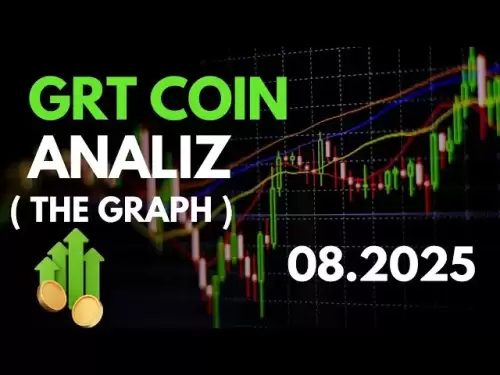-
 Bitcoin
Bitcoin $119300
2.40% -
 Ethereum
Ethereum $4254
-0.20% -
 XRP
XRP $3.184
-1.38% -
 Tether USDt
Tether USDt $1.000
0.00% -
 BNB
BNB $803.9
0.58% -
 Solana
Solana $183.1
1.50% -
 USDC
USDC $0.0000
0.01% -
 Dogecoin
Dogecoin $0.2339
-2.87% -
 TRON
TRON $0.3384
0.88% -
 Cardano
Cardano $0.8018
-0.29% -
 Hyperliquid
Hyperliquid $45.13
3.14% -
 Chainlink
Chainlink $22.10
0.96% -
 Stellar
Stellar $0.4439
-0.94% -
 Sui
Sui $3.875
-0.73% -
 Bitcoin Cash
Bitcoin Cash $570.7
0.24% -
 Hedera
Hedera $0.2589
-2.90% -
 Ethena USDe
Ethena USDe $1.001
-0.01% -
 Avalanche
Avalanche $23.83
-1.73% -
 Litecoin
Litecoin $123.8
2.61% -
 Toncoin
Toncoin $3.351
-1.13% -
 UNUS SED LEO
UNUS SED LEO $9.103
1.13% -
 Shiba Inu
Shiba Inu $0.00001356
-1.40% -
 Uniswap
Uniswap $10.93
-0.19% -
 Polkadot
Polkadot $4.057
-1.97% -
 Dai
Dai $1.000
0.01% -
 Cronos
Cronos $0.1646
4.66% -
 Ethena
Ethena $0.7974
8.11% -
 Pepe
Pepe $0.00001208
-2.89% -
 Bitget Token
Bitget Token $4.445
-1.70% -
 Monero
Monero $268.8
-2.00%
What is the safest way to withdraw money from the currency circle?
By leveraging a tiered withdrawal approach and employing a combination of strong security measures, such as multi-factor authentication and reputable over-the-counter platforms, you can enhance the security of your cryptocurrency withdrawals.
Jan 13, 2025 at 10:20 pm
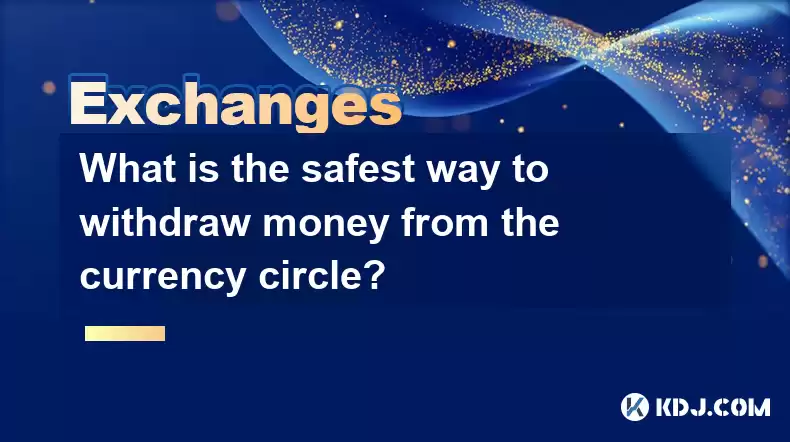
Key Points:
- Assess security measures of cryptocurrency exchanges and wallets
- Implement multi-factor authentication and strong passwords
- Leverage cold storage devices for offline asset protection
- Utilize reputable over-the-counter (OTC) platforms for large withdrawals
- Employ a tiered withdrawal approach to minimize risk
Safest Ways to Withdraw Money from the Cryptocurrency Circle
1. Assess the Security of Cryptocurrency Exchanges and Wallets
As a first step, carefully evaluate the security measures employed by your chosen cryptocurrency exchange or wallet. Look for exchanges that have a history of strong security practices, such as regular security audits, cold storage, and two-factor authentication (2FA). For wallets, consider hardware wallets or multi-signature wallets, which provide enhanced security features.
2. Implement Multi-Factor Authentication and Strong Passwords
Multi-factor authentication (MFA) adds an extra layer of security by requiring multiple verification steps during withdrawals. This typically involves a code sent to your phone or email. Additionally, create strong passwords that are unique to your cryptocurrency accounts and update them regularly. Avoid reusing passwords or using easily guessable combinations.
3. Leverage Cold Storage Devices for Offline Asset Protection
Cold storage devices, such as hardware wallets or paper wallets, store cryptocurrencies offline, making them immune to online hacking attempts. Hardware wallets are physical devices that securely store private keys, while paper wallets are offline printouts of private keys. When not actively transacting, consider moving your assets to cold storage for maximum security.
4. Utilize Reputable Over-the-Counter (OTC) Platforms for Large Withdrawals
Over-the-counter (OTC) platforms facilitate direct transactions between buyers and sellers without involving an exchange. For large withdrawals, OTC platforms offer personalized service and can help arrange secure transactions with verified counterparties. However, carefully research and choose reputable OTC platforms with a proven track record.
5. Employ a Tiered Withdrawal Approach to Minimize Risk
Instead of withdrawing large amounts all at once, adopt a tiered withdrawal strategy. Divide your funds into smaller increments and withdraw gradually over multiple transactions. This spreads the risk and reduces the potential impact of any security breaches or transaction failures.
FAQs
Q: How frequently should I change my cryptocurrency passwords?
A: Regularly changing your cryptocurrency passwords, preferably every few months or even more frequently, is highly recommended to prevent unauthorized access.
Q: Can I transfer my cryptocurrency directly from a hardware wallet to my bank account?
A: Typically, hardware wallets cannot directly transfer cryptocurrencies to bank accounts. You may need to first transfer your assets to an exchange or OTC platform before initiating a bank withdrawal.
Q: How do I protect my cryptocurrency assets from malware and phishing attacks?
A: Keep your software and security applications up to date, be cautious of suspicious emails or links, and avoid clicking on unsolicited attachments. Utilize anti-malware software and consider installing browser extensions that block phishing websites.
Q: Are there any insurance options available to protect my cryptocurrency investments?
A: Certain cryptocurrency exchanges and platforms may offer insurance policies to cover losses due to security breaches or other incidents. Explore these options for additional peace of mind.
Q: How can I recover my cryptocurrency if my private key is lost or stolen?
A: If you lose or have your private key stolen, the recovery process depends on the specific cryptocurrency and wallet used. Some wallets may offer recovery mechanisms or seed phrases, but it is essential to back up and store your private key securely.
Disclaimer:info@kdj.com
The information provided is not trading advice. kdj.com does not assume any responsibility for any investments made based on the information provided in this article. Cryptocurrencies are highly volatile and it is highly recommended that you invest with caution after thorough research!
If you believe that the content used on this website infringes your copyright, please contact us immediately (info@kdj.com) and we will delete it promptly.
- BlockDAG's T6900 Crypto Presale Buzz: Is the $0.0016 Entry the Real Deal?
- 2025-08-11 09:08:47
- Animoca Brands' Cool Cats Investment: A Purr-fect Match for the NFT Future
- 2025-08-11 09:08:47
- XRP, Luminite Wallet, and DeFi Access: A New Era?
- 2025-08-11 09:08:47
- Dogecoin, SHIB Whales, and Meme Coins: What's the Latest?
- 2025-08-11 09:08:47
- Bitcoin's Wild Ride: Short Squeezes, $120K Dreams, and What It All Means
- 2025-08-11 09:08:48
- Crypto Treasury, Capital Shift, and Startup Raises: What's the Deal?
- 2025-08-11 09:08:48
Related knowledge
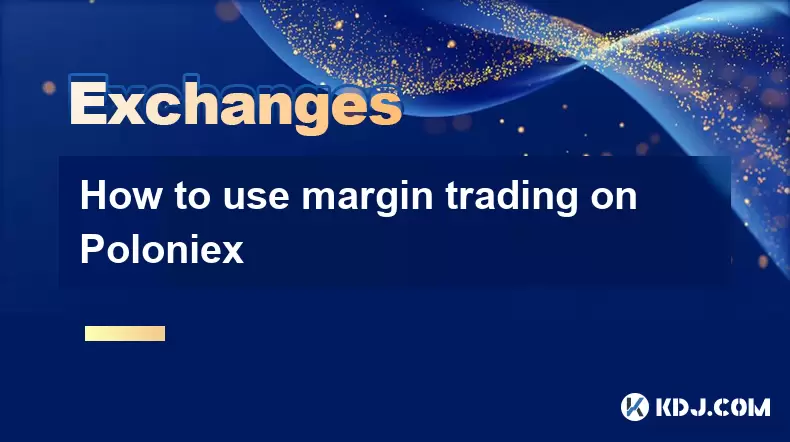
How to use margin trading on Poloniex
Aug 08,2025 at 09:50am
Understanding Margin Trading on Poloniex

How to read the order book on KuCoin
Aug 10,2025 at 03:21pm
Understanding the Order Book Interface on KuCoinWhen accessing the order book on KuCoin, users are presented with a real-time display of buy and sell ...
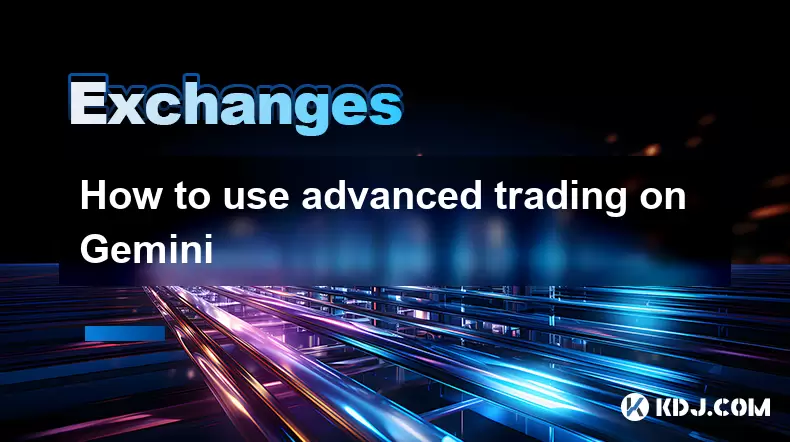
How to use advanced trading on Gemini
Aug 08,2025 at 04:07am
Understanding Advanced Trading on GeminiAdvanced trading on Gemini refers to a suite of tools and order types designed for experienced traders who wan...
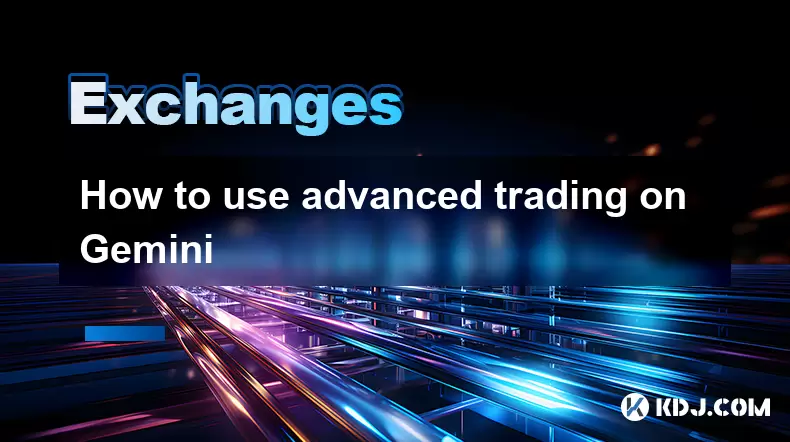
How to use advanced trading on Gemini
Aug 08,2025 at 10:56pm
Understanding Advanced Trading on GeminiAdvanced trading on Gemini refers to the suite of tools and order types available on the Gemini ActiveTrader p...

How to get my API keys from KuCoin
Aug 08,2025 at 06:50pm
Understanding API Keys on KuCoinAPI keys are essential tools for users who want to interact with KuCoin's trading platform programmatically. These key...

How to trade options on Deribit
Aug 09,2025 at 01:42am
Understanding Deribit and Its Options MarketDeribit is a leading cryptocurrency derivatives exchange that specializes in Bitcoin (BTC) and Ethereum (E...

How to use margin trading on Poloniex
Aug 08,2025 at 09:50am
Understanding Margin Trading on Poloniex

How to read the order book on KuCoin
Aug 10,2025 at 03:21pm
Understanding the Order Book Interface on KuCoinWhen accessing the order book on KuCoin, users are presented with a real-time display of buy and sell ...

How to use advanced trading on Gemini
Aug 08,2025 at 04:07am
Understanding Advanced Trading on GeminiAdvanced trading on Gemini refers to a suite of tools and order types designed for experienced traders who wan...

How to use advanced trading on Gemini
Aug 08,2025 at 10:56pm
Understanding Advanced Trading on GeminiAdvanced trading on Gemini refers to the suite of tools and order types available on the Gemini ActiveTrader p...

How to get my API keys from KuCoin
Aug 08,2025 at 06:50pm
Understanding API Keys on KuCoinAPI keys are essential tools for users who want to interact with KuCoin's trading platform programmatically. These key...

How to trade options on Deribit
Aug 09,2025 at 01:42am
Understanding Deribit and Its Options MarketDeribit is a leading cryptocurrency derivatives exchange that specializes in Bitcoin (BTC) and Ethereum (E...
See all articles





















